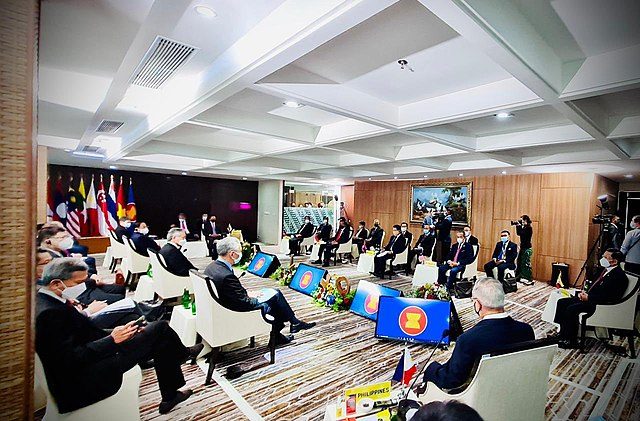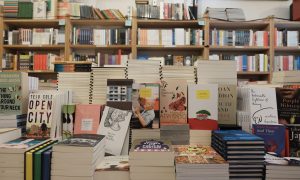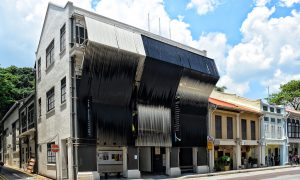Readers will need no reminders of the ongoing global precarity that has marked the second year of the COVID-19 pandemic. We have seen the remarkable capacity of science to produce vaccines that offer hope of a resolution to one of the greatest existential threats of our age. And we have witnessed how power of capital combines with systemic racism and distrust in public institutions to destroy that hope. The Delta variant has overwhelmed countries in the Southeast Asian region, with the latest data tracking published on CSIS showing that the number of COVID-19 deaths in Indonesia—currently listed as 144,024—is only around 13,000 fewer than the rest of the region combined.
As 2021 closes, we face the consequences of vaccine inequity, and brace for another year of uncertainty. Amid this global challenge, Southeast Asia has continued to experience upheaval and change. The ever-present Belt and Road initiative has taken on new significance especially in Southeast Asia as geopolitical shifts have drawn attention to China’s global investment influence. ASEAN’s role in the region has also come into the spotlight as the pandemic and Myanmar challenged its credibility, and critics drew attention to inaction on gender-based violence
We followed the unfolding humanitarian disaster that has devastated Myanmar as its people faced a military coup coupled with the pandemic, with authors unpacking the civil disobedience movement and a rising feminist response to the patriarchal Tatmadaw, which is also exploiting natural resources for profit. From the Philippines our authors tracked the ways that civil society led responses to the pandemic while leaders floundered. From Timor Leste the twin crises of floods and lock-downs brought out the best and worst in leaders, while in Indonesia the introduction of the Omnibus law in 2020 continues to reveal impacts on cultural heritage and women’s labour, and the crackdown on Islamists reveals illiberal tendencies. Thailand’s youth protests escalated and evolved across the year, prompting poetic protest. Cambodia’s declining democracy prompted concern amid commemorations of the 1991 Paris Peace Agreements and incursions on academic and press freedom in Malaysia remained a concern alongside the perennial issue of racialised identity politics, eclipsing yet another leadership turnover. In Vietnam tragedy visited the families of domestic workers abroad and in Laos, our correspondents pointed to the ways that subsistence social structures and local knowledge might insulate some from the worst impacts of public health crises.
We also launched our arts platform ARTSEA, which provides readers with analysis of visual art, design, architecture, theatre and literature from Southeast Asia. On this and all subjects, we invite readers to contribute; you can find details on the submissions process here.
In 2022 New Mandala will continue to provide a platform for anecdote, analysis and new perspectives on and from Southeast Asia. With the Philippines general elections looming, readers can expect expert coverage from political scientists across the region and beyond. In the wake of COP26, we will also be focusing on issues around environmental justice, climate change, resource management, pollution and ecological sustainability.
My thanks is due to our home institution, the Coral Bell School of Asia Pacific Affairs in the College of Asia Pacific at the Australian National University; to New Mandala’s erstwhile assistant editor, Cat Yen, who left New Mandala earlier in the year; to our volunteer associate editors for 2022, Natalie Seeto (author of this article on LGBTQI legal battles in Singapore) and Andre Kwok (author of this article on digital public policy research, among others) to the New Mandala advisory board and its chair Associate Professor Marcus Mietzner; to all our contributing authors and to you, dear readers, for without you, New Mandala would not exist.
New Mandala will be taking a break from today until the New Year. In the meantime we’ll leave you with the top posts of 2022 to keep you busy over the break.
Top 10 posts for 2021:
A censored thesis then a defamation lawsuit: academic freedom in Thailand
Chinese Investment in Southeast Asia, 2005-2019: Patterns and Significance
Behind the coup: what prompted the Tatmadaw’s grab for power?
ASEAN on Myanmar’s coup: revisiting Cold War diplomacy on Cambodia
New friends, old enemies: Politics of Ethnic Armed Organisations after the Myanmar Coup
The impact of the Indonesian government’s crackdown on Islamists
 Facebook
Facebook  Twitter
Twitter  Soundcloud
Soundcloud  Youtube
Youtube  Rss
Rss 


